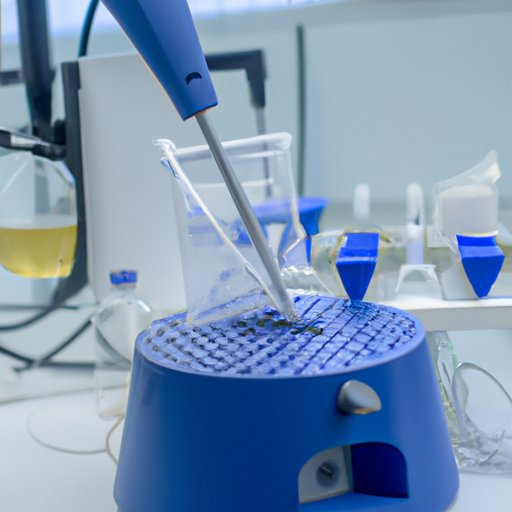Introduction
The scientific process often involves studying the effects of one variable on another. However, when conducting experiments, researchers must consider the potential impact of other factors, known as control variables. Control variables are essential for accurately measuring the effects of a given variable and drawing valid conclusions from scientific experiments. This article explores what control variables are and why they are important to the scientific process.
What Scientists Need to Know About Control Variables
Control variables are factors that remain constant throughout an experiment. They are used to isolate the effects of a particular variable and eliminate any potential confounding factors. By controlling for other variables, scientists can more accurately measure the effects of their independent variable. For example, if a researcher wanted to study the effect of temperature on plant growth, they could set the amount of light and water to a constant level while varying the temperature.
According to Dr. Alan Price, a professor of psychology at the University of Washington, “Control variables are key to conducting accurate experiments. They help ensure that any differences observed between groups or conditions are due to the independent variable and not some other factor.”

A Guide to Understanding Control Variables in Science
When designing an experiment, scientists must identify all potential control variables. These can include factors such as time, location, age, gender, and ethnicity. The researcher must then decide which variables need to be controlled for in order to accurately measure the effects of the independent variable. It is important to note that not all variables need to be controlled for in every experiment; rather, the researcher must determine which variables are likely to affect the outcome of the experiment and adjust their design accordingly.
Once the control variables have been identified, the researcher must decide how to control them. This can involve randomizing the order in which participants are tested, assigning participants to different groups, or using a placebo. Each of these methods has its own advantages and disadvantages, so it is important to carefully consider which approach is most appropriate for the experiment.

How Control Variables Help Scientists Make Accurate Conclusions
Control variables are essential for ensuring that the results of an experiment are valid and reliable. By controlling for extraneous variables, scientists can ensure that the results of their experiment are due to the independent variable and not to some other factor. This helps to increase the accuracy of the results and draw valid conclusions from the data.
In addition, control variables help to reduce the risk of bias in an experiment. By controlling for variables such as age, gender, and ethnicity, researchers can eliminate the potential for personal biases to influence the results of their experiment. This helps to ensure that the results are based on objective data and not subjective opinions.

Investigating the Use of Control Variables in the Scientific Method
Control variables are an integral part of the scientific process. Without them, it would be impossible to accurately measure the effects of a given variable and draw valid conclusions from an experiment. While control variables can help to ensure the accuracy of the results, they can also introduce their own problems. For instance, controlling too many variables can make it difficult to identify the effects of the independent variable.
Dr. Maria Lopez, a professor of biology at the University of California, Berkeley, notes that “Control variables are essential for conducting accurate experiments, but they can also be a double-edged sword. If not used correctly, they can lead to inaccurate results and invalid conclusions.”
Conclusion
Control variables are essential components of the scientific process. They help to ensure that the results of an experiment are due to the independent variable and not some other factor. By controlling for extraneous variables, scientists can reduce the risk of bias and draw valid conclusions from their data. While control variables can be beneficial, it is important to use them correctly to ensure the accuracy of the results.
In conclusion, control variables play a crucial role in the scientific process. By understanding how control variables work and how to use them effectively, scientists can ensure that their experiments produce valid and reliable results.
(Note: Is this article not meeting your expectations? Do you have knowledge or insights to share? Unlock new opportunities and expand your reach by joining our authors team. Click Registration to join us and share your expertise with our readers.)
